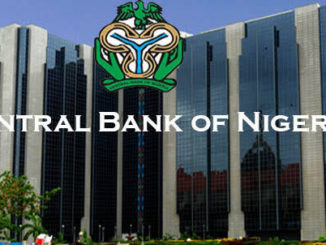
A supply gap caused the Naira to depreciate further yesterday in the parallel market to N930/$1, down from N925 at the beginning of last week, rising concerns that the exchange rate crises that followed the foreign exchange market reforms in June 2023 may persist.
The Investors and Exporters (IandE) window exchange rate, however, increased week over week to N758.1 from N775.6.
The difference between the parallel market rate and that of the I&E window is indicated by the current exchange rates as a rising parallel market premium.
The gap was N153.41 per dollar on Wednesday of last week, but by yesterday it had increased to N171.9 per dollar. This development has greatly increased the incentive for round-tripping and arbitrage in the ecosystem of the foreign exchange market.
Market watchers have also observed that Bureau de Changes, or BDCs, have not benefited the market as intended a month ago when the segment was reinstated into the Central Bank of Nigeria’s (CBN) official trading window with the aim of allowing the market to be more open to independent forex supply and better access for individual retail end users.
The BDCs, on the other hand, have bemoaned the fact that the renewed depreciation of the local currency was primarily brought on by the lack of foreign currencies.
‘Even some Nigerians are unable to withdraw forex from their domiciliary accounts in banks,’ a BDC operator told Vanguard, indicating how severe the shortage is.
As a result of banks’ refusal to sell to BDCs, he claimed that the CBN’s lifting of the ban on the sale of foreign exchange to BDC operators has not been able to alleviate the shortage.
According to FMDQ data, the market started at N761.24 to the dollar, reaching a high of N807.15 and a low of N738, respectively.
The I&E window saw foreign exchange transactions worth a total of $42.26 million.
According to the CBN, banks are in a position to gain from the potential for the change in the forex regime to significantly raise the naira value of banks’ foreign currency (FCY) assets and liabilities.
The apex bank ordered deposit money banks, or DMBs, to stop using gains from the naira’s revaluation to pay dividends or finance operations.
Prof. Uche Uwaleke, President, Association of Capital Market Academics of Nigeria, ACMAN, commented on the naira’s continued depreciation despite the lifting of the ban on selling foreign exchange to BDCs. “Recall that the ban was placed in the first place due to the abuses associated with the selling of Forex to BDCs due to their large and unmanageable number.
”If the CBN has established a need to resume such sales, then it should first prune the over 5000 BDCs to a controllable number of less than 1000 through a regulatory-induced merger and acquisition.
“Only then will the CBN be able to effectively oversee the BDCs; otherwise, the CBN will find itself going in circles. “.



![Forex trader called out after he used a ‘photoshopped’ picture to lie that he built a Mall for his mother [Photos]](https://www.gistlover.com/wp-content/uploads/2022/10/man-mall-mom-lie.jpg)